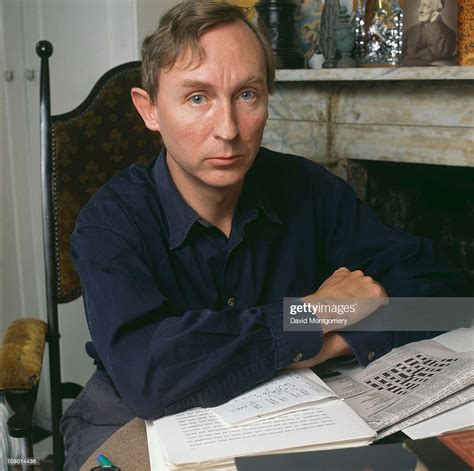A Quote by Albert Einstein
No one must think that Newton’s great creation can be overthrown in any real sense by this [Theory of Relativity] or by any other theory. His clear and wide ideas will for ever retain their significance as the foundation on which our modern conceptions of physics have been built.
Related Quotes
A successful unification of quantum theory and relativity would necessarily be a theory of the universe as a whole. It would tell us, as Aristotle and Newton did before, what space and time are, what the cosmos is, what things are made of, and what kind of laws those things obey. Such a theory will bring about a radical shift - a revolution - in our understanding of what nature is. It must also have wide repercussions, and will likely bring about, or contribute to, a shift in our understanding of ourselves and our relationship to the rest of the universe.
Relativity was a highly technical new theory that gave new meanings to familiar concepts and even to the nature of the theory itself. The general public looked upon relativity as indicative of the seemingly incomprehensible modern era, educated scientists despaired of ever understanding what Einstein had done, and political ideologues used the new theory to exploit public fears and anxieties-all of which opened a rift between science and the broader culture that continues to expand today.
Well, it [evolution] is a theory, it is a scientific theory only, and it has in recent years been challenged in the world of science and is not yet believed in the scientific community to be as infallible as it once was believed. But if it was going to be taught in the schools, then I think that also the biblical theory of creation, which is not a theory but the biblical story of creation, should also be taught.
One of the most exciting things about dark energy is that it seems to live at the very nexus of two of our most successful theories of physics: quantum mechanics, which explains the physics of the small, and Einstein's Theory of General Relativity, which explains the physics of the large, including gravity.
We went to the moon using just Newton's laws of motion and gravity. Newtonian dynamics we call it. So then we find out, "Well, this works because there's certain regimes we've never tested it in." Had we done so, we would show that it didn't work: For example, at very high speeds, very high gravity, Newton's laws fail. They just fail. You need Einstein's laws of motion and gravity. Those would be his special theory of relativity and general theory of relativity. Now you invoke those and it works.
Such is professional jealousy; a scientist will never show any kindness for a theory which he did not start himself. There is no feeling of brotherhood among these people. Indeed, they always resent it when I call them brother. To show how far their ungenerosity can carry them, I will state that I offered to let Prof. H--y publish my great theory as his own discovery; I even begged him to do it; I even proposed to print it myself as his theory. Instead of thanking me, he said that if I tried to fasten that theory on him he would sue me for slander.
It is natural that a man should consider the work of his hands or his brain to be useful and important. Therefore nobody will object to an ardent experimentalist boasting of his measurements and rather looking down on the 'paper and ink' physics of his theoretical friend, who on his part is proud of his lofty ideas and despises the dirty fingers of the other.
Experiment and Theory in Physics
A priori one should expect a chaotic world which cannot be grasped by the mind in any way... The kind of order created by Newton's theory of gravitation...is wholly different. Even if the axioms of the theory are proposed by man, the success of such a project presupposes a high degree of ordering of the objective world.... That is the "miracle" which is being constantly reinforced as our knowledge expands.


































